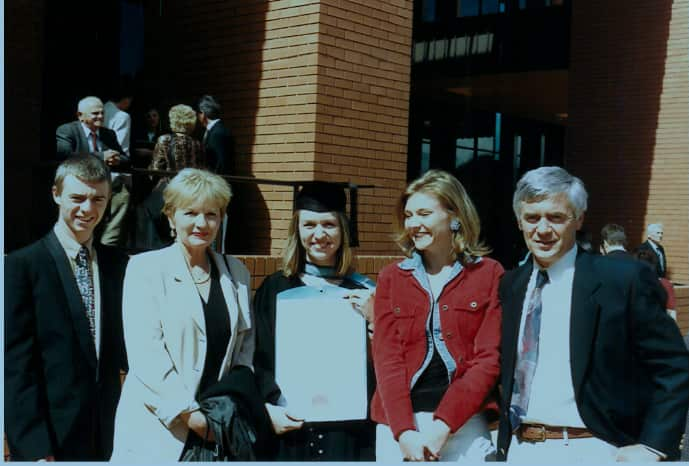Preview above: Insight explores what it’s like to live with multiple sclerosis, what causes it, how effective are modern treatments and how close is a cure? Full ep. on SBS On Demand.
I am 46 years old and I live in an aged care nursing home. The story of how I got to this point began when I was just 20 years of age.
At that time, I was a third-year medical student at Monash University, studying to be a doctor.
I began to experience impaired vision in both eyes. I had difficulty reading the board in lecture theatres and small street signs. I had difficulty reading the fine print in text books. My vision became blurry when I went for a jog. For about a month, my eyes hurt when I moved them.
I wasn’t scared. I thought that I needed glasses and that my vision problems would be corrected with lenses.
I went to an optometrist and after two eye examinations he was unable to give a diagnosis of my eye condition. A general practitioner then diagnosed me with bilateral optic neuritis, inflammation of both optic nerves. I was referred to a neurologist and a CT scan of my brain revealed widespread areas of demyelination (damage to the coating of my nerve cells). I was prescribed one month of oral anti-inflammatory medication and sent on my way.
I continued with my medical degree and I found that study was an excellent distraction from my visual problem. I enthusiastically pursued the social activities of many of my peers, but just one year later, when I was letting my hair down and enjoying uni life, I was diagnosed with multiple sclerosis (MS). I was only 21.

From the beginning, my MS has always been slowly progressive. Fortunately, I have never experienced significant MS-related pain or fatigue so I was able to carry on with my life – but I always knew that it would eventually progress and take over my body.
Despite the obvious challenges, I completed medicine in 1996 and I was able to work as a medical practitioner for 14 years in jobs that did not require fine visual acuity.
While I experienced declining hand function over the years, it wasn’t until 2000 that doctors said I needed to begin treatment for my MS.
My family were always supportive, but I’ve had relationship difficulties in the past due to my disease. My de facto boyfriend of six years told me that he was having trouble coping with my MS, saying he hated seeing my physical decline. So, I left. At that point, I was using a walking frame.
Despite the treatment, my MS became complex and gradually affected my bladder function and my ability to walk. I progressed from requiring the assistance of a walking stick, to a walking frame, to a wheelchair and I developed a tremor that occurred with activity. My hand function declined further and I became legally blind.
I felt cheated when I knew that I couldn’t go home. Cheated by fate, I guess. I had tried so hard to live independently.
My employers were always assistive with my changing work abilities, but in late 2012 I became unable to transfer independently between my wheelchair and different locations, such as the toilet or my mobility scooter. I was admitted to hospital, followed by three weeks of neurorehabilitation for my MS. Then I was admitted to a nursing home in January 2013. I was only 40. Six years later I’m still here, not likely to ever return to independent living.
I felt cheated when I knew that I couldn’t go home. Cheated by fate, I guess. I had tried so hard to live independently. After the first meal in the nursing home I broke down. I felt awful. After consulting a GP, I saw a psychologist. I combat future feelings of despair by keeping myself constantly occupied.
Now, I am very involved with MS Limited, the previous MS Society. I am an MS Ambassador and undertake public speaking engagements. I am involved in peer support for three young people in nursing homes with MS. I hope that I can help others by performing these activities. These actions are ways of keeping me occupied and being involved with people my own age makes me feel less isolated.
I do not like living in a nursing home, however I feel safe here. While I would like to have access to medication that halts progression of my disease, I do not expect to see a cure for MS in my lifetime.
If I had been diagnosed with MS today, rather than 25 years ago, with current MS treatments my life course may have been different. Maybe. For now I just hope to continue public speaking, singing and writing and I pray for a cure for future generations.
Insight is Australia's leading forum for debate and powerful first-person stories offering a unique perspective on the way we live. Read more about Insight
Have a story or comment? Contact Us


